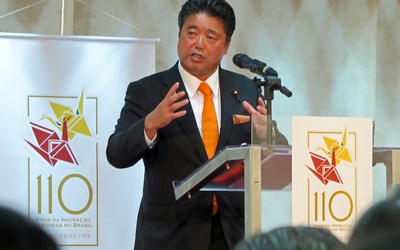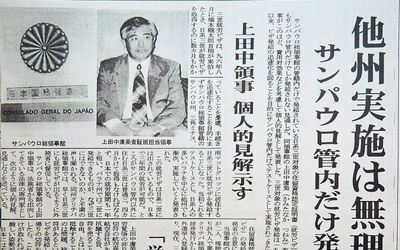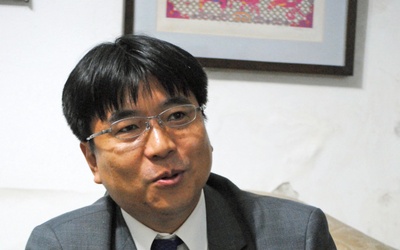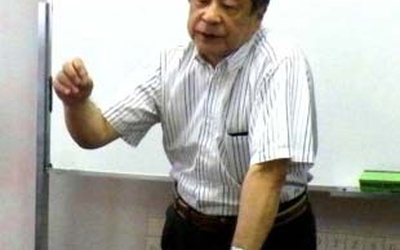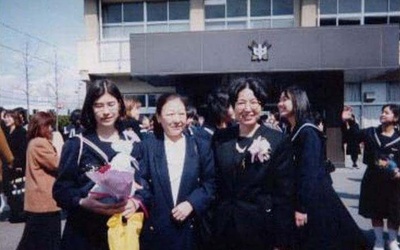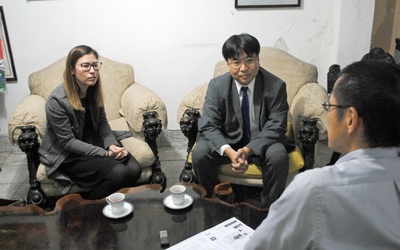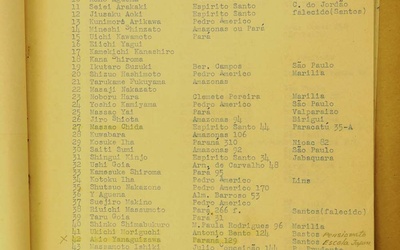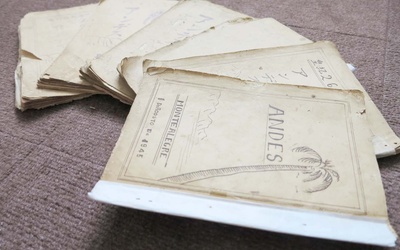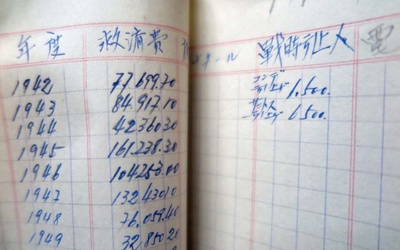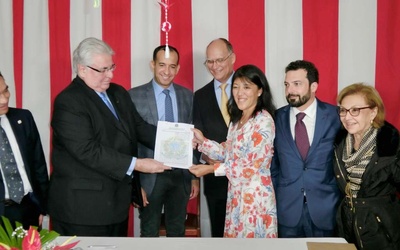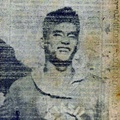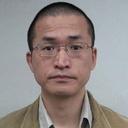
Masayuki Fukasawa
@masayukifukasawaBorn on November 22, 1965, in Numazu City, Shizuoka Prefecture, Japan. In 1992, he went to Brazil for the first time and worked as an intern at Paulista Shimbun (Japanese newspaper in Brazil). In 1995, he went back to Japan and worked with Brazilians at a factory in Oizumi-machi, Gunma Prefecture. He wrote a book, Parallel World (Ushio Publishing) about his experiences there and received Ushio Nonfiction Award in 1999. He returned to Brazil in 1999. Beginning in 2001, he worked at Nikkey Shimbun and became the editor-in-chief in 2004. He has been an editor-in-chief of Diário Brasil Nippou since 2022.
Updated January 2022
Stories from This Author
Part 6: Fourth generation immigrants: strict conditions for visa issuance
Oct. 22, 2018 • Masayuki Fukasawa
Read Part 5 >> Why are they stricter on Japanese people but more lenient on other foreign workers? [Nagai] Also, in 1990 and 1995 when Professor Patricia went, the difference in GDP per capita between Japan and Brazil was about 10 times, so if you worked in Japan for a few years, you could buy an apartment here, buy a car, or open a company. That's why it made sense to go to dekasegi. However, recently the gap has narrowed …
Part 5: Is Level 4 Japanese a requirement for fourth-generation Japanese visas?
Oct. 15, 2018 • Masayuki Fukasawa
Read Part 4 >> [Fukasawa] By the way, are you a third generation Patricia? [Shimano] Yes. There are many fourth-generation Koreans born in Japan. There are also many fourth-generation Koreans living in Japan who have not obtained permanent residence visas. First of all, I think it would be better to value and support such people who are already in Japan. [Fukazawa] What happens to a fourth-generation Japanese-born person who turns 20 and leaves their parents' care? [Nagai] You can just …
Part 4: Fourth-generation immigrant visas as a human resource development system
Oct. 8, 2018 • Masayuki Fukasawa
Read Part 3 >> Are temp agencies the bad guys? [Fukazawa] Based on your experience, do you have any suggestions or comments on how Japan could improve its dekasegi issue or visa system? [Shimano] It's more of a criticism than a suggestion. [Fukasawa] That's great (laughs), that's great. [Shimano] I don't really understand what the purpose of the fourth generation visa is. When I look at the Ministry of Justice website, I see various things said about it being something …
Part 3: Former dekasegi student, Shimano Patricia - Returning to Brazil
Oct. 1, 2018 • Masayuki Fukasawa
Read Part 2 >> Moving to Brazil after the Lehman Shock [Fukazawa] When did you come back to Brazil? [Shimano] That was in 2009, after the Lehman shock. [Fukazawa] I went to Japan when I was 10 years old, in 1995. I stayed in Japan for about 15 years and came back when I was 25. I worked in Japan for quite a while. [Shimano] Yes, from April 2003 to September 2009. [Nagai] Did you do anything other than 3M? …
Part 2: Former dekasegi worker's daughter, Patricia Shimano - High school admission and the sudden death of her mother
Sept. 24, 2018 • Masayuki Fukasawa
Read Part 1 >> Meeting a wonderful teacher opened the door [Fukasawa] Did you go to high school in Japan as well? [Shimano] Yes. I was able to go thanks to my English teacher. I was the first foreigner to attend a public high school in Okazaki City. My mother died suddenly when I was in my second year of high school. [Fukasawa] So you really wanted to go on to high school and that's why you went there? [Shimano] …
Part 1: Former dekasegi worker, Patricia Shimano - She came to Japan with her mother at age 10
Sept. 17, 2018 • Masayuki Fukasawa
If the fourth-generation visa is a success and fifth and sixth generation Japanese are able to come to Japan to work and learn about Japanese culture, then surely this visa system could be an important system that will determine the future of the Japanese community? Based on this understanding of the problem, we held a roundtable discussion with Fukasawa Masayuki, editor-in-chief of the Nikkei Shimbun, and invited Shimano Patricia, a former dekasegi worker who became a lawyer in Brazil after …
The 110th Anniversary of Japanese Immigration to Brazil: Complete Return of Santos Japanese School, Long-Awaited ‘True War End,’ Finding Ways to Live Together in Peace, Overcoming Prejudice Against Foreigners - Part 4
July 10, 2018 • Masayuki Fukasawa
Read Part 3 >> Looking Back on History Began in 2000 For the past few years, things have started to move. Okinawa-born film director Yojyu Matsubayashi has already interviewed ten or more people who had been evicted from Santos and is planning to shoot a documentary film. When he visited the Santos Japanese School in 2016, by chance he found a name list of people who had been evicted, and that’s when he started digging into it. Some of the …
The 110th Anniversary of Japanese Immigration to Brazil: Complete Return of Santos Japanese School, Long-Awaited ‘True War End,’ Finding Ways to Live Together in Peace, Overcoming Prejudice Against Foreigners - Part 3
July 9, 2018 • Masayuki Fukasawa
Read Part 2 >> Information on Victory as Fake News As I was listening to Kami-san’s talk, I found that he began his “paper pellets” strategy when he was about 23 years old. During the time of the Monte Alegre colony, the cultural section of the youth organization began issuing the newsletter ANDES on August 1, 1945. When I went to his house in September, 2016 for an interview, he showed me something he had treasured. It was a B5-size …
The 110th Anniversary of Japanese Immigration to Brazil: Complete Return of Santos Japanese School, Long-Awaited ‘True War End,’ Finding Ways to Live Together in Peace, Overcoming Prejudice Against Foreigners - Part 2
July 5, 2018 • Masayuki Fukasawa
Read Part 1 >> Exodus of Japanese Immigrants in South America Kami-san was born on March 15, 1922 in the city of Nogata in Fukuoka Prefecture, and in 1993 when he was 11 he moved to Brazil with his parents. At first he went to the Hirano colony and then to the Monte Alegre colony near the Bastos transmigration site and lived in Lins after the war and moved to Santos in 1956. The Hirano colony is one of the …
The 110th Anniversary of Japanese Immigration to Brazil: Complete Return of Santos Japanese School, Long-Awaited ‘True War End,’ Finding Ways to Live Together in Peace, Overcoming Prejudice Against Foreigners - Part 1
July 4, 2018 • Masayuki Fukasawa
“The Japanese language school was frozen and condemned by the Brazilian government as hostile property. It will be the true war’s end for me when the school gets returned to us the Nikkei.” This was what Arata Kami, who had led a campaign for getting the school back for over 20 years, all on his own, kept saying. On June 18, the day of the 110th anniversary of Japanese immigration to Brazil, a ceremony was held to change title of …

